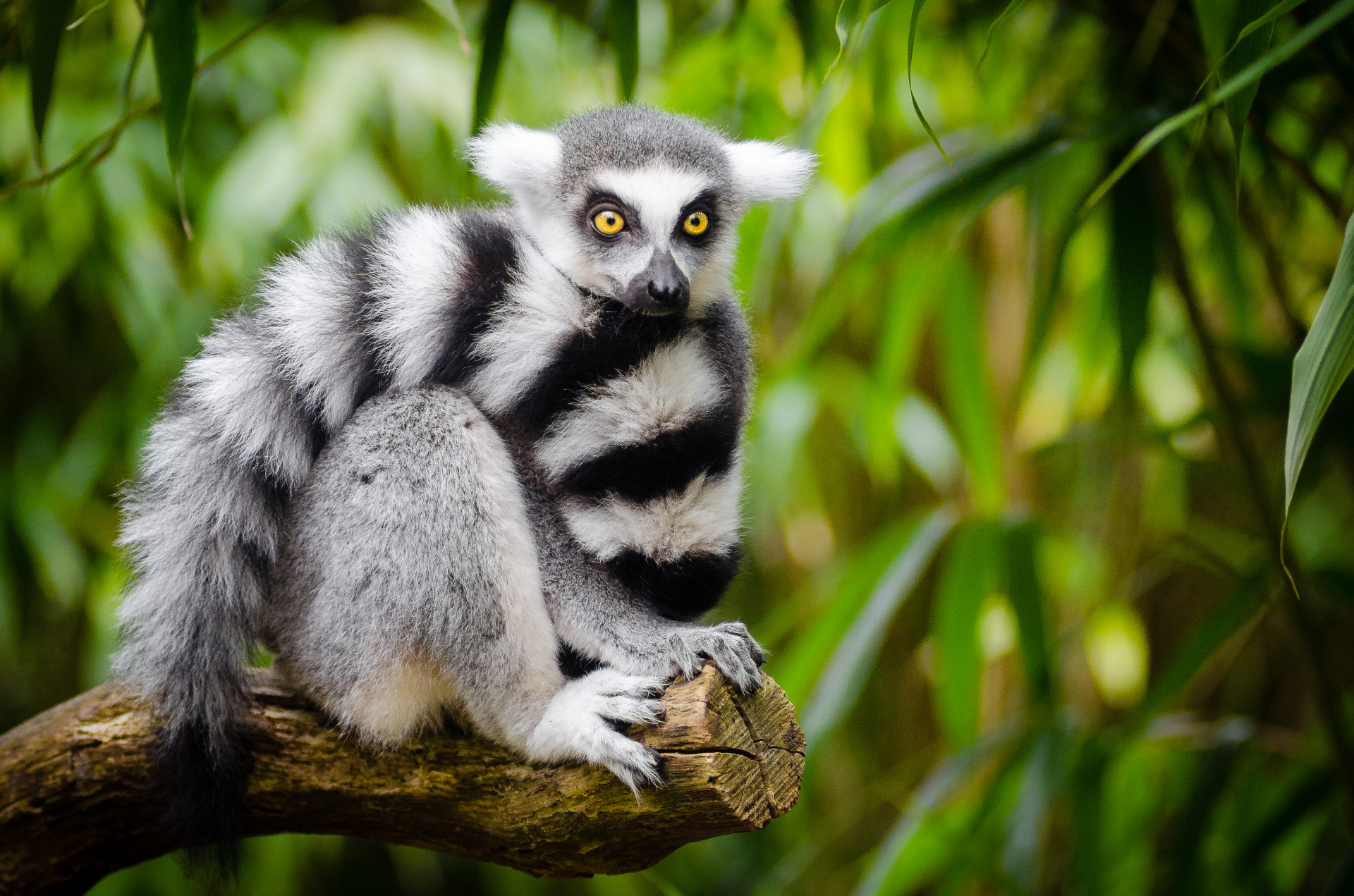The Social Personalities of Ringtailed Lemurs.
Navigating society and the social structure that we can find ourselves surrounded by can be daunting as well as challenging for anyone and yet our primate relatives share many of the same concerns about life in a group that we do.
If you observe any group of animals for long enough, especially the more socially developed primate species, you notice slight behavioural differences between individuals that are consistent over time. These are the social personality traits which cause some animals to be more social or aggressive than others.
Developing a personality is crucial to animals who live in large and complex social groups, where they have a variety of hierarchies and relationships to keep track of. Both apes (including orangutans and chimpanzees) and Old World monkeys (macaques and baboons) tend to form groups that can range from ten to one thousand individuals, with the largest 'horde' of non-human primates ever seen is a group of mandrills at 1,300 strong in Gabon, Africa.
An animal's behaviour in their social group can, therefore, have significant consequences for everything from finding a mate and disease transmission to accessing food or shelter. Scientists have also suggested possible health benefits of living in a group in addition to the idea that the more you know your group members, the better you will be able to predict their behaviour in the future.

This area has become a popular topic of study with over 100 articles published in the last decade on primate personality alone. Recently, scientists out of Princeton University have suggested that this also applies to ringtailed lemurs, after a two-year study on wild and captive populations.
Ipek Kulahci, who led the study, used two different approaches to infer social personalities: firstly, analysing how lemurs interacted with each during different behaviours; and secondly, using 'centrality metrics' (being a focus point in the social group) to see if the behaviours were consistent over time. Observations were taken for two consecutive years on a population in a large natural habitat enclosure at Duke Lemur Centre, North Carolina, and for a group of free-ranging ringtailed lemurs on St. Catherine's Island, Georgia.
They found that some lemurs had high social centrality consistent over the two years and that there was temporal consistency with interaction partners over a number of beheaviours, suggesting that these animals have developed complex social personalities to maximise the opportunities of living within these large groups.
The researchers then compared their conclusions to studies done on other species. Highly sociable individuals in great tits expressed greater exploration; sociable manakins (a South American bird) showed higher breeding success; and sociable yellow-bellied marmots were more likely to sound alarm calls.

The future of research will be to analyse a variety of species for whether they too have social personalities. Scientists have indicated areas of development could revolve around questions such as how early experiences affect adult personality or whether animal personalities are consistent over longer periods and across more contexts.
Nevertheless, this area of scientific study has implications to human society too, for example with aspects being applied to deciding which canine species are best to detecting explosives as well as psychology, endocrinology and zoo management.
When living in large social groups, life for lemurs can be challenging if the negative interactions outweigh the positive ones that we have with our group members, with the consequences often being a matter of survival. Yet the ability of these animals to develop personalities very similar to other species, including humans, extends our knowledge as a community. We are learning that we share common traits with more and more species thanks to the work of dedicated researchers, connecting our human personalities to those of the animal kingdom in fascinating new ways.
Author: Thomas Llewellyn
Reference:
Kulahci, I.G. et al. "Consistent individual variation across interaction networks indicates social personalities in lemurs." Animal Behaviour 136 (2018) 217-226.
Whether part of invention or innovation, many engineers have found inspiration in nature simply because many of mother nature's designs have evolved to be far more efficient than any man-made creation. The concept of biomimicry, the production of models based on biological entities, has given us more efficient wind turbines from the fins of whales,...




